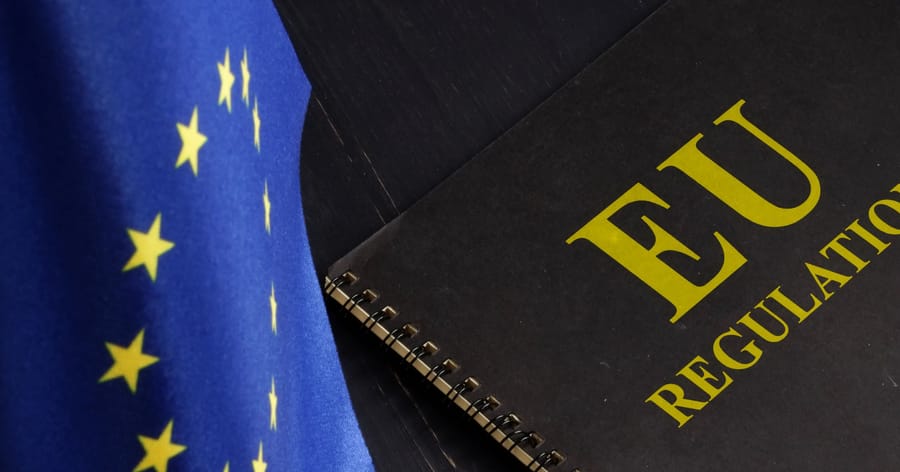
The European Union's ecommerce landscape is constantly evolving, and staying compliant with the latest regulations is crucial for online businesses. As we approach 2024, new rules and updates to existing laws are set to reshape the digital marketplace. This comprehensive guide will walk you through the 10 most important EU ecommerce regulations for 2024, helping you navigate the complex legal landscape and ensure your online business thrives in the European market.
General Data Protection Regulation (GDPR) Updates
The GDPR continues to be a cornerstone of EU data protection law. In 2024, expect stricter enforcement and potential updates to address emerging technologies.
Key points to consider:
- Enhanced consent requirements for data collection
- Stricter rules on cross-border data transfers
- Increased focus on AI and machine learning data processing
FAQ: How often should I review my GDPR compliance?
Answer: It's recommended to conduct a thorough GDPR audit at least once a year and whenever you implement new data processing activities.
Digital Services Act (DSA) Implementation
The DSA, set to be fully implemented by 2024, aims to create a safer digital space. Online marketplaces and platforms will need to:
- Implement robust content moderation systems
- Provide transparent reporting on removed content
- Ensure greater accountability for larger platforms
Digital Markets Act (DMA) Enforcement
The DMA targets large online platforms, or "gatekeepers," to ensure fair competition. By 2024, affected companies must:
- Allow third-party apps and app stores on their platforms
- Enable users to easily uninstall pre-installed apps
- Provide business users with access to performance data
VAT E-commerce Package Refinements
Building on the 2021 VAT reforms, expect further refinements in 2024:
- Possible adjustments to the €10,000 threshold for cross-border sales
- Enhanced reporting requirements for online marketplaces
- Potential introduction of real-time VAT reporting systems
FAQ: How do I stay updated on VAT changes?
Answer: Regularly check the official European Commission taxation website and consider subscribing to their newsletter for timely updates.
Artificial Intelligence Act
While still in development, the AI Act is likely to impact ecommerce businesses using AI-powered tools by 2024:
- Mandatory risk assessments for high-risk AI systems
- Transparency requirements for AI-driven customer interactions
- Potential restrictions on certain AI applications in ecommerce
Strengthened Consumer Rights
Expect updates to the Consumer Rights Directive, focusing on:
- Extended right of withdrawal periods for certain products
- Clearer information requirements for digital goods and services
- Enhanced protections against unfair commercial practices
Sustainable and Circular Economy Initiatives
New regulations promoting sustainability in ecommerce are on the horizon:
- Mandatory product durability and repairability information
- Extended producer responsibility for packaging waste
- Potential ban on certain single-use plastics in packaging
Cross-Border Parcel Delivery Regulations
To improve transparency and efficiency in cross-border shipping:
- Enhanced price comparison tools for consumers
- Stricter reporting requirements for parcel delivery services
- Potential introduction of EU-wide delivery standards
FAQ: How will these regulations affect my shipping costs?
Answer: While compliance may initially increase costs, improved transparency and competition could lead to more competitive pricing in the long run.
Digital Identity and Trust Services
The eIDAS Regulation is set for an overhaul, impacting online identification and transactions:
- Introduction of EU Digital Identity Wallets
- Stronger security requirements for electronic signatures
- Enhanced cross-border recognition of digital identities
Cybersecurity Requirements
With the increasing threat of cyberattacks, expect stricter security regulations:
- Mandatory cybersecurity certifications for certain ecommerce platforms
- Enhanced incident reporting requirements
- Stricter penalties for data breaches and security lapses
Conclusion
Staying compliant with EU ecommerce regulations in 2024 may seem daunting, but it's essential for building trust with your customers and avoiding costly penalties. By proactively addressing these upcoming changes, you'll position your online business for success in the evolving European digital marketplace. Remember, compliance isn't just about avoiding fines – it's an opportunity to demonstrate your commitment to customer safety, data protection, and fair business practices.
As you navigate these regulations, consider working with legal experts specializing in EU ecommerce law to ensure full compliance. Stay informed, adapt your business practices, and embrace these changes as a chance to stand out in the competitive online landscape. Your efforts in meeting these regulatory challenges will ultimately lead to a stronger, more resilient ecommerce business ready to thrive in the EU market and beyond.
